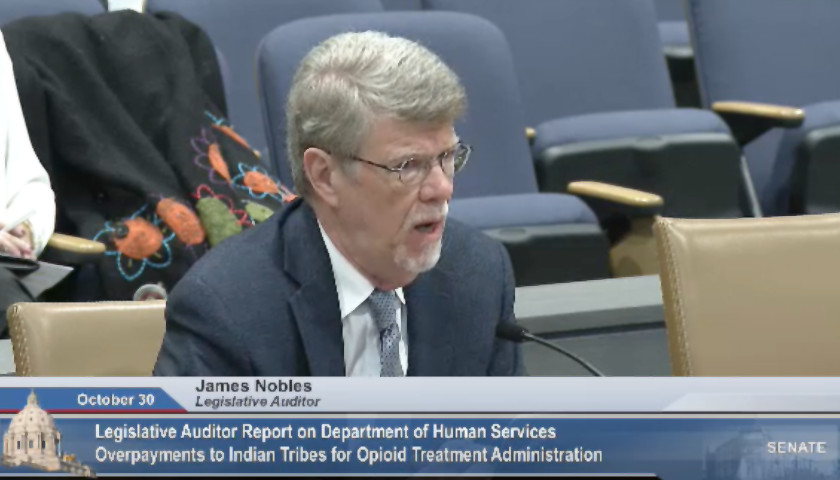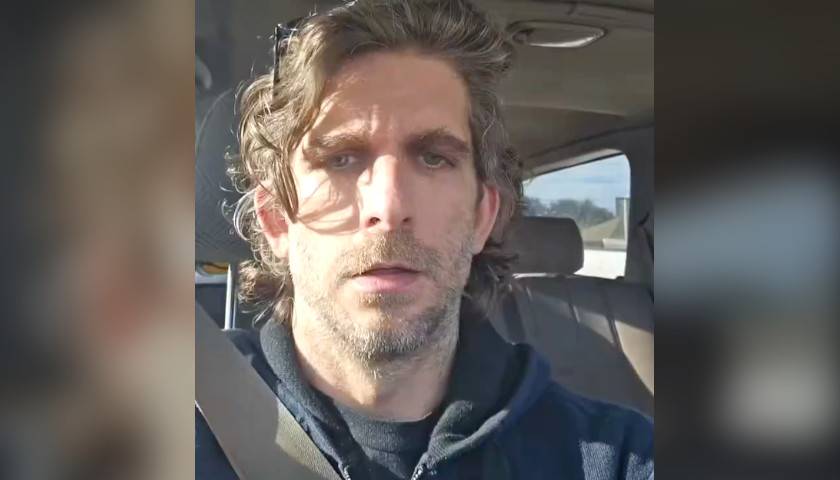Legislative Auditor Jim Nobles testified before a joint Senate committee hearing this week where he described the Minnesota Department of Human Services as “dysfunctional” and “fraught with problems,” and warned of “contentious litigation” between tribal nations and the state.
His Wednesday testimony before the Senate Health and Human Services Finance and Policy Committee and the Human Services Reform Finance and Policy Committee comes after the release of his investigation into the $29 million in overpayments made to White Earth Nation and Leech Lake Band of Ojibwe.
“The department did not have legal authority to make the payments; it did not document why, when, and who decided it was appropriate to make the payments; no one at DHS takes responsibility for the decision; and no one at DHS can provide a rationale for the payments. The overpayments continued over several years and did not stop until an outside inquiry brought them to light,” his report stated, The Minnesota Sun reported.
Nobles explained that the overpayments resulted from DHS paying tribal addiction treatment programs each time a client self-administered medication. Normally, as Nobles pointed out, there’s no payment for that “because there’s no direct service between a health provider and a client.”
“But DHS decided that it would pay the opioid treatment programs run by White Earth Nation and the Leech Lake Band of Ojibwe every time one of their clients self-administered an opioid addiction treatment medication,” said Nobles. “In fact, they were paying a significant amount of money for each time that occurred.”
The DHS used what’s called the Indian Health Services encounter rate to come up with a sum of $455, the amount that was paid to the two tribal nations every time a client self-administered medication.
“Just to be explicit: they were paying every time a person opened the medicine cabinet, took medication, self-administered it—the department was paying the opioid treatment programs of the two tribes $455 every time a client did that,” Nobles commented. “In fact, the tribes were told by officials at the DHS that they could receive those payments. That was direction and guidance that the department gave. They even gave the tribes the billing code to make those payments happen.”
The payments continued until the beginning of May, even though the problem was detected in February of this year, said Nobles.
“I think one of the disturbing things is that they kept making the payments even after they had decided that those payments were not in compliance with legal requirements,” he said during Wednesday’s hearing.
According to state law, the tribes are now on the hook for the overpayments, amounting to about $14.5 million per tribe.
“So this situation at DHS has created a lot of tension between the state and the tribes. In fact, it has really, I think, caused the tribes to question: ‘how is it that we are going to now be held responsible for something that you told us over the years was OK?’” Nobles continued. “We came to the conclusion that it was dysfunction at DHS that caused this problem. That’s a strong word—dysfunction.”
Nobles proceeded to hold up a chart showing the “vertical chain of command where this occurred.”
“Frankly, we think this is something that should’ve been caught by the people who are in DHS everyday, and there are a lot of people who had an opportunity to stop the payment,” he said, and then pointed to the bottom of his chart.
“The person who was giving the instruction to White Earth, Red Lake, and Leech Lake is down here. Between this gentleman, who is giving the direction, and up here at the commissioner’s level, you can see there are many, many supervisors. There are directors, there are assistant commissioners, there are deputy commissioners. That’s why we call this a dysfunction. A dysfunction in supervision, oversight, and control,” Nobles said.
He concluded by saying the state is “left with a very serious problem, a financial problem and a legal problem that belongs to the state because the state spent $29 million of federal money.”
“All of this is federal money,” he noted, and the federal government is authorized to seek reimbursement for overpayments.
“As this plays out over time, this could end up as a fairly complicated and difficult problem to resolve, and could involve quite complex and contentious litigation,” Nobles added.
He ended his testimony by declaring that DHS is “so fraught with problems” that he thinks the Minnesota Legislature should “mandate a comprehensive system of supervision, of review and approval that will be documented.”
DHS Commissioner Jodi Harpstead, who’s been on the job for two months, testified during the hearing and said “there’s nothing more important for the Department of Human Services than to be trustworthy for the people of Minnesota.”
She acknowledged that DHS “gave erroneous guidance” to the tribal nations and offered her apologies.
“The guidance that was given to the tribal nations was wrong, and it’s impossible for us to serve Minnesotans in a trustworthy way if they believe their interactions with DHS could leave them on the hook for tens of millions of dollars,” she said. “I’m especially sorry that this error occurred within the department and unfairly affected the tribal nations, with whom Gov. Walz and Lt. Gov. Flanagan are working to restore trust.”
Danielle Stevens, a compliance director for White Earth Nation, said DHS is squarely to blame for the issue.
“Throughout this process, it has been brought to light that DHS is to blame for overpayments to both White Earth and Leech Lake tribes,” she said. “What hasn’t been addressed is a lack of humanity that DHS is displaying. The only focus that has been made is how that state wants their repayment.”
Sen. Michelle Benson (R-Ham Lake), chair of the Senate Health and Human Services Finance and Policy Committee, said in a statement to “look no further than DHS” if “you want to know how much bureaucracy and unaccountability costs state government.”
“Several levels of management were either too incompetent or too indifferent to check for and identify obviously erroneous payments,” she continued. “There are six managers between the Opioid Treatment Authority Representative and the Commissioner. All of them failed—miserably. If none of them are going to take responsibility, none of them should keep their jobs.”
– – –
Anthony Gockowski is managing editor of Battleground State News, The Ohio Star, and The Minnesota Sun. Follow Anthony on Twitter. Email tips to [email protected].
Photo “James Nobles” by Minnesota Senate.





[…] River) took issue with Harpstead’s attempts to minimize the improper payments, particularly the $29 million in overpayments issued to two Native American tribes for chemical dependency treatment services. Those tribes, the […]
[…] River) took issue with Harpstead’s attempts to minimize the improper payments, particularly the $29 million in overpayments issued to two Native American tribes for chemical dependency treatment services. Those tribes, the […]